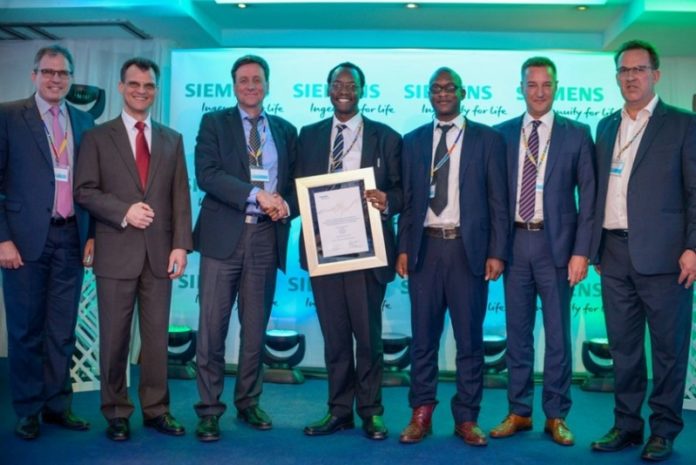44% of all work activities in Ethiopia are susceptible to automation, as are 46% in Nigeria, 52% in Kenya and 41% in South Africa
JOHANNESBURG, South Africa, March 27, 2018/ —
The Internet of Things (IoT) is set to revolutionize the job market and African industry must adapt to survive
Siemens aims to help accelerate digitalization skills and empower those who will be leading the change
State-of-the-art automation equipment donated to engineering faculties in five African markets
The Fourth Industrial Revolution is having a disruptive effect on economies and the development of digital skills is vital. There is an opportunity, especially in Africa, to embrace new and exponential technologies combined with human talent to accelerate industrialization and drive economic growth.
According to The Future of Jobs and Skills in Africa Report (https://goo.gl/XChm5F), release by the World Economic Forum (WEF), it is predicted that 44% of all work activities in Ethiopia are susceptible to automation, as are 46% in Nigeria, 52% in Kenya and 41% in South Africa.
With this in mind, Siemens (www.Siemens.com) is handing over equipment specifically related to industrial automation that enables integrated engineering to 13 engineering faculties at universities in Ghana, Tanzania, Kenya and South Africa. This is part of the company’s commitment to sustainable skills development across the continent. The value of the equipment is close to $400 000.
Data collected by WEF (https://goo.gl/1byqhB) in key African markets shows employers across the region identify inadequately skilled workforces as a major constraint to their businesses, including 41% of all firms in Tanzania, 30% in Kenya, 9% in South Africa and 6% in Nigeria. This pattern may get worse in the future. In South Africa alone, 39% of core skills required across occupations will be wholly different by 2020.
“The uneven development of the past can only be overcome with locally engineered solutions,” says Sabine Dall’Omo, CEO of Siemens Southern and Eastern Africa. “In an African context, disruptive technology can be seen as an opportunity to leapfrog into the best and most advanced technologies, but this is only possible with access to the right training and equipment.”



















